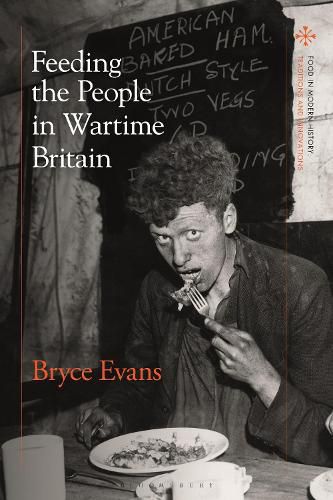Readings Newsletter
Become a Readings Member to make your shopping experience even easier.
Sign in or sign up for free!
You’re not far away from qualifying for FREE standard shipping within Australia
You’ve qualified for FREE standard shipping within Australia
The cart is loading…






While the history of food on the home front in wartime Britain has mostly focused on rationing, this book reveals the importance and scale of nation-wide communal dining schemes during this era. Welcomed by some as a symbol of a progressive future in which ‘wasteful’ home dining would disappear, and derided by others for threatening the social order, these sites of food and eating attracted great political and cultural debate.
Using extensive primary source material, Feeding the People in Wartime Britain examines the cuisine served in these communal restaurants and the people who used them. It challenges the notion that communal eating played a marginal role in wartime food policy and reveals the impact they had in advancing nutritional understanding and new food technologies. Comparing them to similar ventures in mainland Europe and understanding the role of propaganda from the Ministry of Food in their success, Evans unearths this neglected history of emergency public feeding and relates it to contemporary debates around food policy in times of crisis.
$9.00 standard shipping within Australia
FREE standard shipping within Australia for orders over $100.00
Express & International shipping calculated at checkout
While the history of food on the home front in wartime Britain has mostly focused on rationing, this book reveals the importance and scale of nation-wide communal dining schemes during this era. Welcomed by some as a symbol of a progressive future in which ‘wasteful’ home dining would disappear, and derided by others for threatening the social order, these sites of food and eating attracted great political and cultural debate.
Using extensive primary source material, Feeding the People in Wartime Britain examines the cuisine served in these communal restaurants and the people who used them. It challenges the notion that communal eating played a marginal role in wartime food policy and reveals the impact they had in advancing nutritional understanding and new food technologies. Comparing them to similar ventures in mainland Europe and understanding the role of propaganda from the Ministry of Food in their success, Evans unearths this neglected history of emergency public feeding and relates it to contemporary debates around food policy in times of crisis.